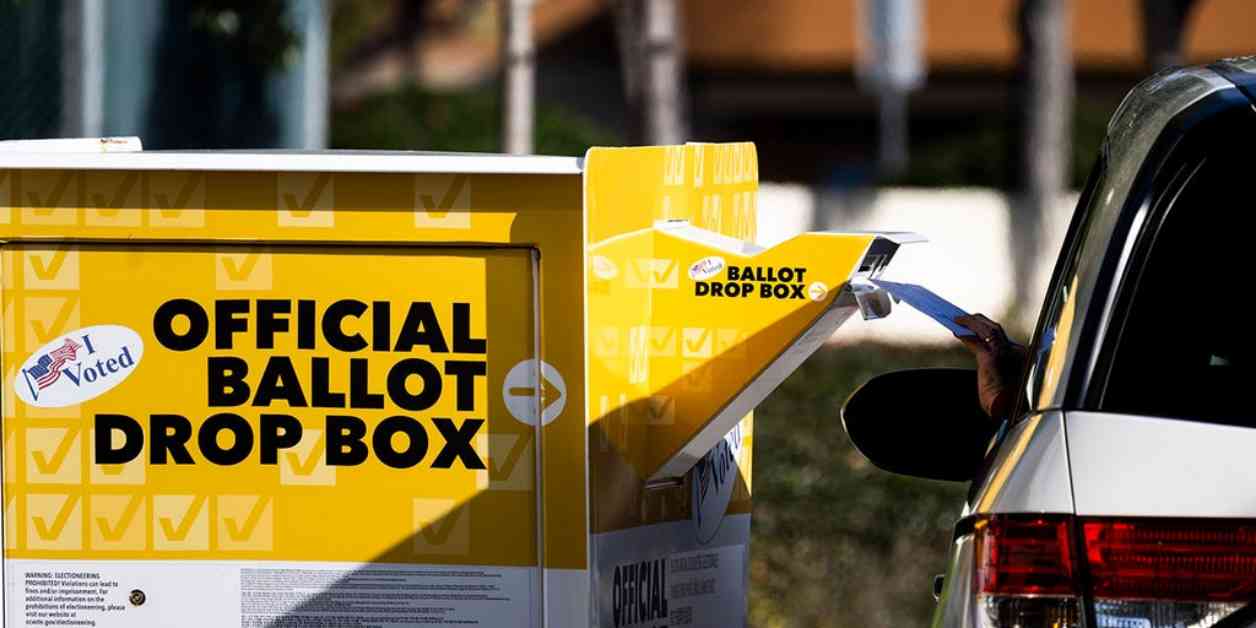Arizona Voter ID Law Supported by 24 AGs in Emergency SCOTUS Stay
In a significant development that could have far-reaching implications for voting laws across the United States, nearly half of the state attorneys general have thrown their support behind an emergency stay sought by the State of Arizona, which aims to require proof of U.S. citizenship to vote in federal elections. This move has sparked a heated debate over voter qualifications, state sovereignty, and the integrity of the electoral process.
The Republican Party of Arizona recently filed an emergency application in support of HB 2492, a state law that mandates proof of citizenship for individuals to cast their ballots in presidential elections. This law, if upheld, would require voters to provide documentation proving their citizenship even when voting by mail. The Arizona GOP emphasized the importance of ensuring that only citizens are able to participate in elections, stating that the Constitution grants states the authority to establish voter qualifications.
The legal battle over Arizona’s voter ID law has attracted significant attention, with 24 state attorneys general voicing their support for the emergency stay. States such as Texas, Florida, Alabama, Alaska, and others have joined forces with Arizona in defending the law, arguing that states have the constitutional right to determine the criteria for voter eligibility. The Dhillon Law Group, representing the Arizona GOP, asserted that the district court’s ruling against the law was not grounded in the Constitution and that states have the prerogative to require proof of citizenship for voting.
Subheadings:
The Debate Over Voter Integrity and Election Security
Support for Voter ID Laws Across the Political Spectrum
Challenges to Voter ID Laws and Legal Implications
The issue of voter integrity and election security has been a contentious topic in American politics, with proponents of voter ID laws arguing that such measures are necessary to prevent fraud and maintain the integrity of the electoral process. The Republican National Committee, in its emergency application for a stay, raised concerns about the potential for non-citizen voting and the need to address this issue promptly. Citing a study that estimated over 11 million illegal aliens in the country in 2019, the RNC highlighted the risks posed by non-citizens participating in elections.
Critics of voter ID laws have raised objections to the requirement of proof of citizenship, arguing that such measures could disenfranchise eligible voters, particularly marginalized communities. The debate over voter ID laws has underscored broader concerns about access to the ballot box, voter suppression, and the impact of such laws on democratic participation. Organizations like the Honest Elections Project have defended the right of states to implement voter ID laws, asserting that such measures are essential for securing elections and preventing fraud.
Support for Voter ID Laws Across the Political Spectrum
Despite the partisan divide on the issue of voter ID laws, there is a growing consensus among a diverse range of political actors in favor of strengthening election security through measures such as requiring proof of citizenship. The support for Arizona’s voter ID law from a coalition of state attorneys general spanning different political affiliations underscores the bipartisan appeal of such laws. States like Texas, Florida, and Georgia, which have traditionally been at the forefront of efforts to enhance election security, have rallied behind Arizona in defending the voter ID requirement.
Challenges to Voter ID Laws and Legal Implications
The legal challenges to Arizona’s voter ID law have raised important questions about the balance between state authority and federal oversight in regulating elections. Critics of the law have argued that it could disproportionately impact certain groups of voters, such as minorities and low-income individuals, who may face barriers to obtaining the necessary documentation. The legal implications of the Supreme Court’s decision on the emergency stay sought by Arizona could set a precedent for other states seeking to implement similar voter ID requirements.
In conclusion, the debate over Arizona’s voter ID law reflects broader tensions in American politics over the balance between election security and voter access. The support for the law from a coalition of state attorneys general highlights the importance of state sovereignty in determining voter qualifications. As the legal battle unfolds, the Supreme Court’s decision on the emergency stay could have significant ramifications for the future of voting laws in the United States.





















